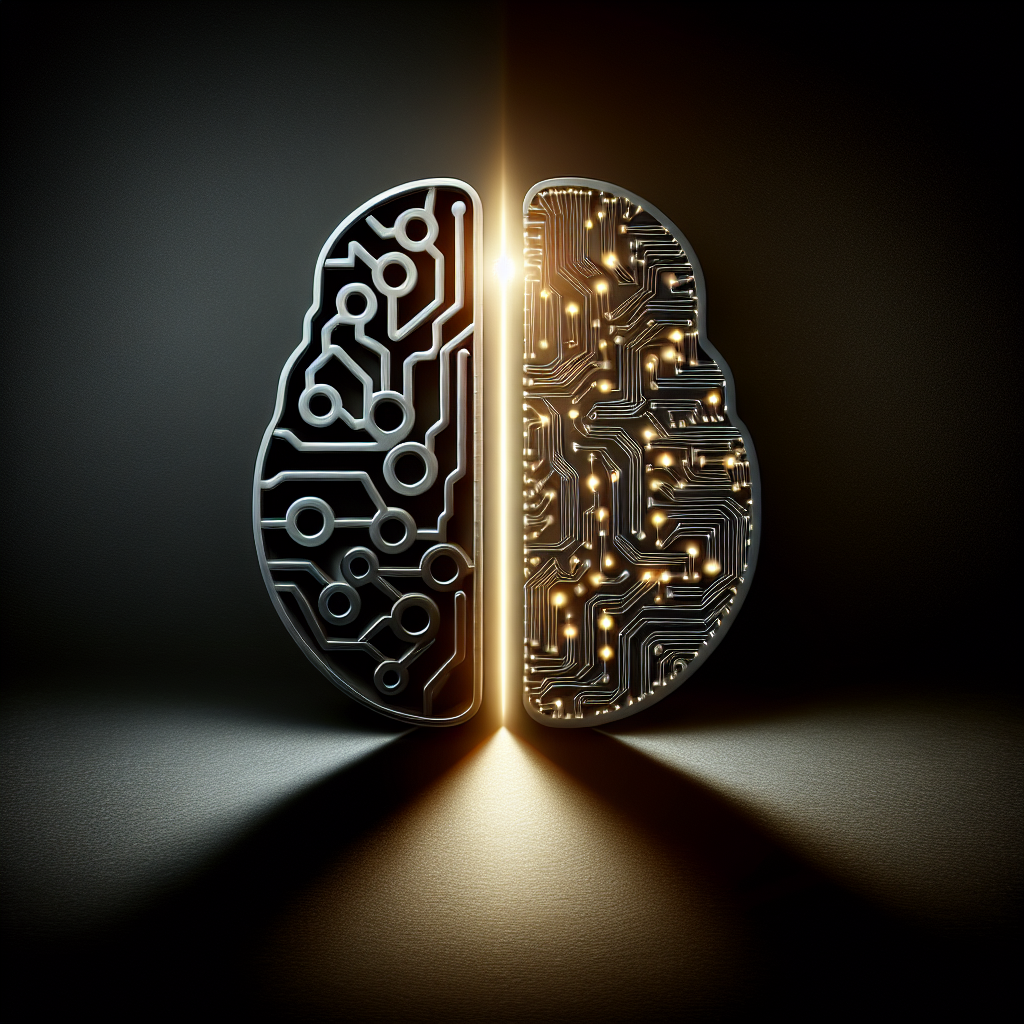Artificial Intelligence (AI) has been hailed as the future of technology, promising to revolutionize industries, enhance efficiency, and improve our daily lives. However, as AI continues to advance at a rapid pace, there is growing concern about its potential risks and challenges. The dark side of artificial intelligence is becoming more apparent, raising important ethical, social, and security issues that need to be addressed.
One of the key risks associated with AI is the potential for bias and discrimination. AI systems are only as good as the data they are trained on, and if that data is biased or flawed, it can lead to biased decisions and outcomes. For example, AI algorithms used in hiring processes have been found to discriminate against certain groups based on gender, race, or other factors. This can have serious consequences for individuals who are unfairly judged or excluded from opportunities.
Another major concern is the impact of AI on the job market. As AI technology becomes more advanced, there is a growing fear that it will lead to widespread automation and job displacement. Many industries are already seeing the effects of AI on employment, with jobs being replaced by machines and algorithms. This raises questions about how society will adapt to this new reality and how we can ensure that people are not left behind in the age of AI.
Additionally, there are concerns about the potential misuse of AI for malicious purposes. AI can be used to create sophisticated cyber attacks, manipulate information, and even develop autonomous weapons systems. The rise of deepfake technology, which can create realistic but fake videos and audio recordings, has raised concerns about the spread of disinformation and the erosion of trust in media and democracy.
Furthermore, there are ethical considerations surrounding the use of AI in decision-making processes. AI algorithms are often opaque and difficult to understand, making it challenging to hold them accountable for their decisions. This raises questions about who is responsible when AI systems make mistakes or act in ways that harm individuals. There are also concerns about the potential for AI to infringe on privacy rights and personal freedoms, as AI systems collect and analyze vast amounts of personal data without consent.
In order to address these risks and challenges, it is crucial that we develop ethical guidelines and regulations for the development and deployment of AI technology. This includes ensuring transparency and accountability in AI systems, protecting privacy and data security, and promoting diversity and inclusion in AI development. It is also important to invest in education and training programs to help people adapt to the changing job market and acquire the skills needed to work alongside AI technology.
In conclusion, while artificial intelligence has the potential to bring about many benefits and advancements, it is important to recognize and address the potential risks and challenges associated with its development. By being proactive in addressing these issues, we can ensure that AI technology is used responsibly and ethically for the betterment of society.
FAQs:
Q: What are some examples of bias in AI algorithms?
A: One example of bias in AI algorithms is in the hiring process, where algorithms have been found to discriminate against certain groups based on gender, race, or other factors. Another example is in predictive policing algorithms, which have been found to target minority communities disproportionately.
Q: How can we address bias in AI algorithms?
A: One way to address bias in AI algorithms is to ensure that the data used to train the algorithms is diverse and representative of the population. It is also important to have checks and balances in place to monitor for bias in AI systems and to be transparent about how decisions are made.
Q: What are the potential consequences of job displacement due to AI automation?
A: The potential consequences of job displacement due to AI automation include unemployment, income inequality, and social unrest. It is important for society to find ways to retrain and reskill workers who are displaced by AI technology in order to ensure a smooth transition to a more automated workforce.
Q: How can we ensure that AI technology is used responsibly and ethically?
A: One way to ensure that AI technology is used responsibly and ethically is to develop guidelines and regulations for the development and deployment of AI systems. It is also important to promote transparency, accountability, and diversity in AI development and to engage with stakeholders to address ethical concerns and potential risks.

